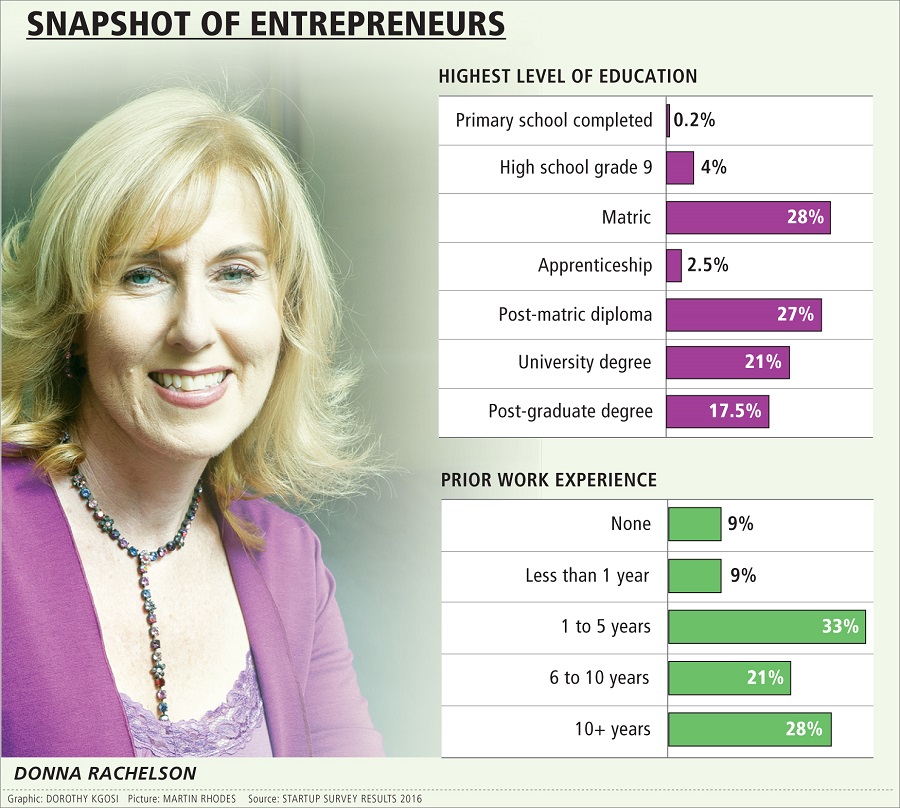PRIOR work experience is a major driver of success for entrepreneurs who start new businesses in SA, with a survey showing that most of the businesses that survive for at least two-and-a-half years after they start are run by people with more than 10 years of experience.
The Seed Academy startup survey found that more than 80% of entrepreneurs have more than one year of work experience and that almost two-thirds have some form of tertiary qualification, raising questions about the notion that entrepreneurship would help to solve SA’s problem of youth unemployment, given the high number of unemployed young people who are poorly educated and have never worked.
Its findings indicated that more needed to be done to enhance the funding "ecosystem" for small business, as well as to prepare entrepreneurs to be funding ready, and that entrepreneurs needed help with marketing and skills development, said Seed Academy CEO Donna Rachelson.
More needed to be done to equip young entrepreneurs with the skills and work experience necessary to build sustainable businesses, she said.
The survey, which is the largest of its kind in SA, targets enterprises that are five years old or less, and in 2016 had just fewer than 1,500 respondents, up from about 1,000 in 2015.
The survey is conducted by Seed Academy, which is a for-profit social enterprise that develops and supports entrepreneurs.
Rachelson said that the survey showed that most entrepreneurs started up new businesses for the right reasons, because they saw opportunities in the market, rather than because they were unemployed, with only 4% doing so because they could not find a job.

The revised black economic empowerment (BEE) codes that came into effect in 2015 reward supplier development and require that companies meet targets for investment in supplier and enterprise development if they want to do well on the BEE scorecard.
As a result, "companies in SA are scrabbling to develop their supply chains and find black-owned suppliers and especially black women-owned suppliers", Rachelson said.
Seed Academy had expected that at least some of the new corporate money being set aside to develop black-owned suppliers would be available to fund startup enterprises, and there are also several development finance institutions that provide funding for small businesses.
However, Rachelson said it was a concern that not much had changed since the previous survey.
"The entrepreneurs are very resilient, but most still work from home and fund themselves. The key challenges are access to funding and to customers. And the businesses are slow to gain traction," she said.
An inability to raise funds was cited as a major challenge by 47% of the entrepreneurs, but the biggest challenge — highlighted by 49% of the enterprises — was "finding clients or customers".
Only 2% have funded their businesses from bank loans, development finance institutions or angel investors, while 85% have self-funded their businesses, with R50,000 or less.
Rachelson said it was a concern that black African people and women were underrepresented in South African startups, with only 59.3% of the startups that were surveyed founded by black Africans and only 31% by women.





















